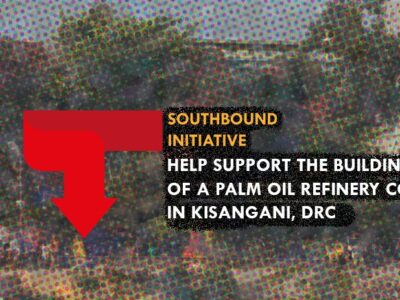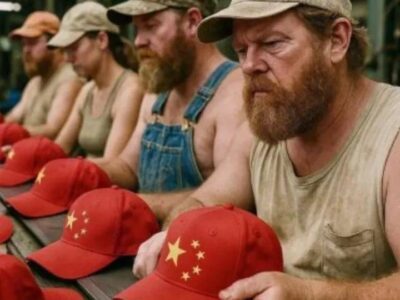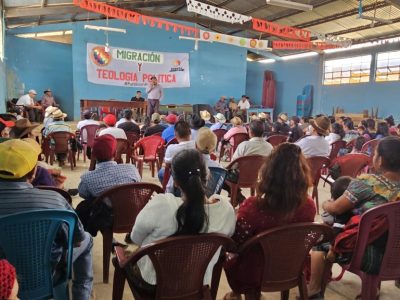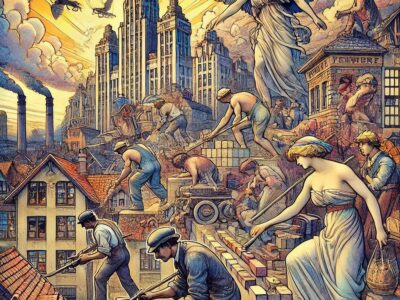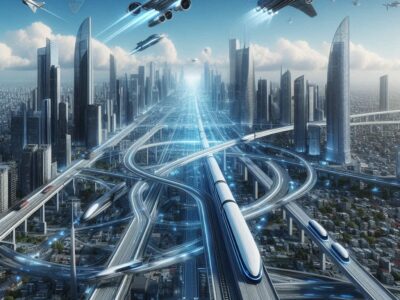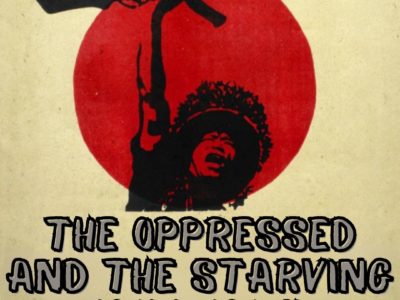This interview has been originally published in German by Junge Welt and it is available here: »Die treibende Kraft wird der globale Süden sein«
Junge Welt will be streaming 29th International Rosa-Luxemburg Conference “Who owns the world?” that will be held on 13th of January, 2024. in Berlin, and Torkil Lauesen will be one of the speakers. For the stream and more information, please follow the link: Who owns the World?
On neoliberal capitalism, the new world order and socialist perspectives on transformation. A conversation with Torkil Lauesen
Karim Natour
In the 1970s and 1980s, as part of the so-called Blekingegade group, you robbed money transfers in Denmark and passed the loot on to national liberation movements with a socialist orientation in the global South. Why didn’t you concentrate on Denmark?
We did. We were a communist group based in Copenhagen, founded in the mid-1960s, and we wanted a revolution in Western Europe. The working class there was interested in higher wages, but not in socialism. They were quite happy with the social democratic welfare state. The experiences in our workplaces and our analysis of capitalism led us to the conclusion that without a victory of the “Third World” over imperialism, there would be no revolution here in the imperialist center. Instead, we assumed that the socialist revolutions in the global South would have to cut the “pipelines” that “transfer” the value from the periphery to the center, from which the working class in the North benefited. So we took a global perspective on the socialist revolution.
And that’s why you raided money transfers ?
We materially support the revolutionary movements in the global South and through this process also practically prepare for the coming struggle in our part of the world. Through our legal and illegal support work, we wanted to learn the skills and build the organization necessary for the future struggle. We decided not to go “underground”. As a revolutionary underground organization, we would have been tracked down and searched by the police within a very short time. So we were active “undercover” from 1971 to 1989, only unfortunate circumstances and coincidences led to our arrest. Moreover, we did not believe that our actions would have an educational and symbolic effect as an example to inspire the “masses” in Denmark. Western Europe was not a dry prairie that could have been ignited by a revolutionary spark. It was a wet blanket.
The national liberation movements were much stronger back then than they are today, but they still didn’t abolish capitalism. Were you too optimistic?
Yes, we were too optimistic, naive or our analysis of how global capitalism would develop was too short-sighted. There was a lot of revolutionary momentum at the time. But despite the mobilization of millions of committed revolutionaries and the victory of national liberation movements in many countries, capitalism survived and was dynamic. National liberation proved easier to achieve than economic liberation from imperialist domination. The power of the world market, increasingly dominated by the USA, brought countries of the South “back in line”. The neoliberal economic and political offensive from the 1970s onwards shattered the anti-imperialist spirit of the 1960s within a decade.
In 2016, you published the book “The Global Perspective” on “Imperialism and Resistance”, which is now also available in German. How has global capitalism changed since the 1970s?
The transformation is enormous in every respect. Globalization under neoliberal auspices, i.e. the liberalization, deregulation and privatization of production on a global scale and the increasing interdependence of production in commodity chains, has seen hundreds of millions of industrial jobs relocated from the global North to the low-wage countries of the South in the search for higher profits. In 1980, there were roughly as many industrial workers in the global South as in the North. Today, 85 percent of industrial workers are in the global South! Globalization gave capitalism forty golden years of high profit margins and cheap goods for consumers in the North. It dissolved so-called real socialism in the Soviet Union and Eastern Europe and penetrated deep into the Chinese economy.
The result was, on the one hand, an increased transfer of value from South to North. On the other hand, the immense development of productive forces in the global South began to turn the tide. Thus China, a former peripheral state, has now become the engine of the global production system – an unintended side effect of the capitalist desire to exploit the huge Chinese proletariat.
What are the consequences of this development?
For the USA, the People’s Republic is no longer a “goose that lays golden eggs”, but a serious competitor. This has prompted the USA to change its strategy for maintaining its own hegemony from neoliberal globalization to a geopolitical-territorial confrontation course. Economic competition has turned into an economic war waged with boycotts, blockades and punitive tariffs. The established transnational political, financial and trade institutions are eroding. At the same time, we are witnessing the strengthening of old military alliances and the creation of new ones. The proxy war waged by the USA and NATO against Russia in Ukraine and the new “cold war” against China are attempts to maintain the supremacy of the USA despite these extensive changes. In doing so, however, US policy is breaking up the world market on which its current power and wealth are based.
There are therefore two geopolitical blocs that are currently colliding.
The US, the EU, Japan and Australia are currently united in their efforts to maintain transatlantic hegemony. They form one side of the current historical-concrete main contradiction in the world system. The main contradiction arises from the contradictions of the capitalist mode of production and is reflected in world politics. The other side is led by China, which is striving for a multipolar world system. In this endeavor, the country is supported by a conglomerate of states from the South that are pursuing the same goal: to change the trade and financial structures that have dominated the world system over the last two centuries.
Do you see the rise of China as a reason for hope?
Yes. China has broken the polarizing tendency in global capitalism between rich and poor countries that has secured the capitalist accumulation process over the last two hundred years. The crisis of neoliberalism in 2007-8 has led to a shift to the left there and the economy is no longer only geared towards exports to the US and the EU, but increasingly towards the domestic market and trade with countries of the South. In the confrontation with neoliberalism, the country has so far retained command of its economy and continues to pursue the national project of “Chinese-style socialism”. Countries in Latin America and Africa are also looking for new ways to develop their economies, which gives me hope.
Is that enough?
The cooperation between the BRICS states is certainly not anti-capitalist or anti-imperialist. Countries like Russia, Iran or Egypt are repressive capitalist regimes. But by providing alternative trade and financial structures, space is created for movements and countries that want to move towards socialism. A clear socialist perspective is still lacking, but the development of productive forces in the global South has put the countries there in a better position to develop national liberation into economic liberation from imperialism, which was not possible before. The current decline of US hegemony is the most important factor for a possible transition to socialism on a global scale, and BRICS are contributing to this process. This does not mean that we should not support the struggles against oppression and exploitation within these states.
Do you still believe today that the working classes in the global North have no revolutionary potential?
At present, I think that is still true. The workers here are dissatisfied with their living conditions, but the majority still believe that the solutions to their problems lie within the Western capitalist system. They have a “gut feeling” that NATO is the best “defense of their values” and their way of life. They see the global South as a threat rather than a potential ally. In recent decades, we have seen how racism and right-wing populism have spread in Europe and North America. People don’t want to share their own prosperity…
Do you see the fight for a fairer world in the global North as hopeless?
No. It is important to realize that the bourgeoisification of the local working class through consumption of goods produces by low wage workers from the periphery is a historical phenomenon that has arisen through colonialism and reformism. The fact that it has grown historically means that it can change. The working class in Western Europe and North America occupies a double position in the world capitalist system: on the one hand, it is an object of exploitation, as it performs wage labor that creates surplus value and profit for capital. Due to their relatively high wage level, they themselves skim off surplus value through their consumption of goods produced by low-wage workers in the global South. This is why colonialism and imperialism were supported by sections of the working class. To deny or ignore the importance of the transfer of value from South to North for the working class here is to run the risk of seeing every economic struggle as a revolutionary struggle on the road to socialism.
Doesn’t the increasing precarization and new composition of the more migrant and female-dominated working class in the global North speak against the thesis of the “bribed labour aristocracy”?
These trends exist, but in my view they do not substantially change the situation described. The globalization of production has meant an enormous increase in the transfer of value through the “unequal exchange” of goods and labour in international trade. The wage gap between the South and the North is now one in ten – and look around you! Most of the products we consume are produced by low-wage labor in the global South. The struggle of more precarious segments of the working class in the North is above all a desire to be included in the privileged “imperial way of life”, rather than for a fundamentally different mode of production and consumption. The situation is somewhat different for migrant workers.
To what extent?
Imperialism does not only mean the transfer of value from South to North through the trade of goods, but also of labor. Not every form of wage labor can be relocated to the global South in order to generate more profit. Agricultural production, construction, maintenance and all kinds of services – from cleaning to the hotel and catering industry, healthcare, care for the elderly and prostitution – are tied to a specific location. Companies are countering this by “insourcing” migrant workers to produce goods and provide services at lower wages than the local working class.
Due to increasingly frequent economic crises and wars as well as the consequences of climate change, people will be increasingly forced to migrate in the future. Migrant workers could be a Trojan horse that the rulers in the North have let into their own fortress. Because of their position in the production of goods and services, migrant workers are not powerless; their attachment to their families and their hopes for the economic development of their home countries may be stronger than their loyalty to a state that just tolerates their stay.
But tensions between wage earners and capitalists are also increasing in the global North. Do you not see a starting point for revolutionary struggles here?
These tensions are due to the structural economic crises caused by the change in political and economic power relations in the world system. But how will the working class in the North react when its own way of life is no longer possible due to the struggle of oppressed nations and peoples? It will be polarized into politically right-wing and left-wing sections. At the moment, it seems that the majority is moving to the right. The anti-imperialist and socialist faction is a minority – but an important one. A socialist and anti-imperialist perspective in the class struggle is essential for any revolutionary struggle – also in the North. Resisting militarism and supporting the revolutionary movement in the South will be seen as a betrayal of one’s “own” nation. We should prepare for this personally and organizationally.
What can resistance in the imperialist countries look like in concrete terms?
We must not be sectarian in the struggle for peace, but must form the broadest possible alliances and support the socialist movements in the global South as best we can. We must try to promote joint labor struggles between North and South, across production chains, and then of course support the struggle for socialism in the South.
You argue that the problem for revolutionaries today is not “objective conditions”, but “pessimism”. What do you mean by that?
In the global North, pessimism has prevailed for decades with regard to a comprehensive transformation to socialism. We won’t be at the forefront of this, the driving force will be the global South, but I think overall the world is moving in the right direction. The objective conditions for fundamental change are currently favorable because the system is in a structural crisis, i.e. it is unstable. It is easier for the actions of revolutionary movements to make a difference.
You speak of an economic, political and ecological crisis of capital and even claim that capitalism may not survive the year 2050. What makes you so sure?
The capitalist mode of production has reached the limit of exploitation of the proletariat in the periphery and is on a collision course with the global ecosystem. Capitalism is no longer progressive in terms of the development of the productive forces – it is destructive and prevents the progress of humanity. The erosion of the neoliberal world market and alternative political and financial institutions without the dollar as the world trading currency can change the balance. We are also witnessing a crisis within the US that corresponds to its decline as a hegemon. The political elite and the American people are divided, and the presidential elections in 2024 will lead to an intensified political crisis situation, regardless of who is elected.
And then?
Things may develop faster than we expect. Global capitalism can either collapse in brutal chaos, or we can manage to achieve an orderly transformation towards a fairer and more sustainable mode of production. That depends entirely on us. The next decades will be dramatic and dangerous, a revolution is not a tea party. We will see sudden changes in political alliances and in this scenario we need to stay the course and stick to a clear socialist perspective. At the same time, we are running out of time due to climate change. The majority of the world’s population will have to change their production and consumption habits by 2050. Once this date has passed, the only option will be a transition to a kind of “lifeboat socialism”, where fair distribution and sustainable use of resources replace individual consumption as the engine of the economy. Less is not enough to survive, and even that requires a new world order.


